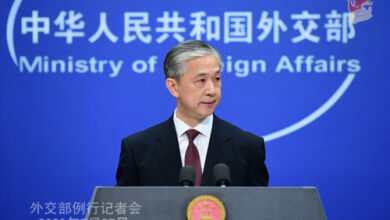CPJ’s coverage of the coronavirus and its impact on press freedom

In many countries, the first victim of the coronavirus pandemic has been the truth. Standing up for the public’s right to accurate information and defending the journalists who provide it is core to CPJ’s mission.
So, in the past few weeks we, along with partner organizations, have been at the forefront of reporting on government attempts to stifle news about COVID-19 and have been providing editors and reporters with information about how to stay safe while covering the story.
Our Emergencies Response Team has put together a step-by-step safety advisory for journalists on the ground. This is vital for those reporters who don’t have access to the resources that journalists at a big news organization with in-house safety experts would enjoy. We are publishing it in a dozen languages including Arabic and, as Iran has been devastated by the disease and accurate information is hard to come by, in Farsi.
We are regularly updating our advisory page, so be sure to bookmark it, and stay connected for the latest information through our email lists, Twitter, Instagram, and Facebook pages.
When events spin out of control in authoritarian countries, the knee-jerk reaction is to blame the media. In Iran, a journalist was detained in connection to his social media posts critical of the government’s response to COVID-19, while in Thailand, the prime minister threatened to arrest any journalists who spread “fake news” about the virus.
China expelled three Wall Street Journal reporters for an opinion headline about coronavirus last month, and video blogger Chen Qiushi has been missing since going to Wuhan in February to report from the epicenter of the outbreak.
We explained how Chinese censorship works through a Q&A with experts at Citizen Lab, who have documented Beijing’s suppression of online information about COVID-19.
CPJ Executive Director Joel Simon wrote in the Columbia Journalism Review about how U.S. retaliation against China could be counterproductive. On February 18, the U.S. State Department designated five state-run Chinese media entities as “foreign missions,” and followed up with a decision to limit visas for journalists at Chinese state-run outlets in the United States, forcing dozens to leave.
But as CPJ Asia Program Coordinator Steven Butler wrote in a piece for Foreign Policy, “The United States Can’t Win Playing China’s Media Games.”
As this virus spreads and causes unrest globally, we can assure you that CPJ is doing what it does best – reporting on press freedom violations so journalists can bring us the news freely and safely, and so governments can be held to account.





